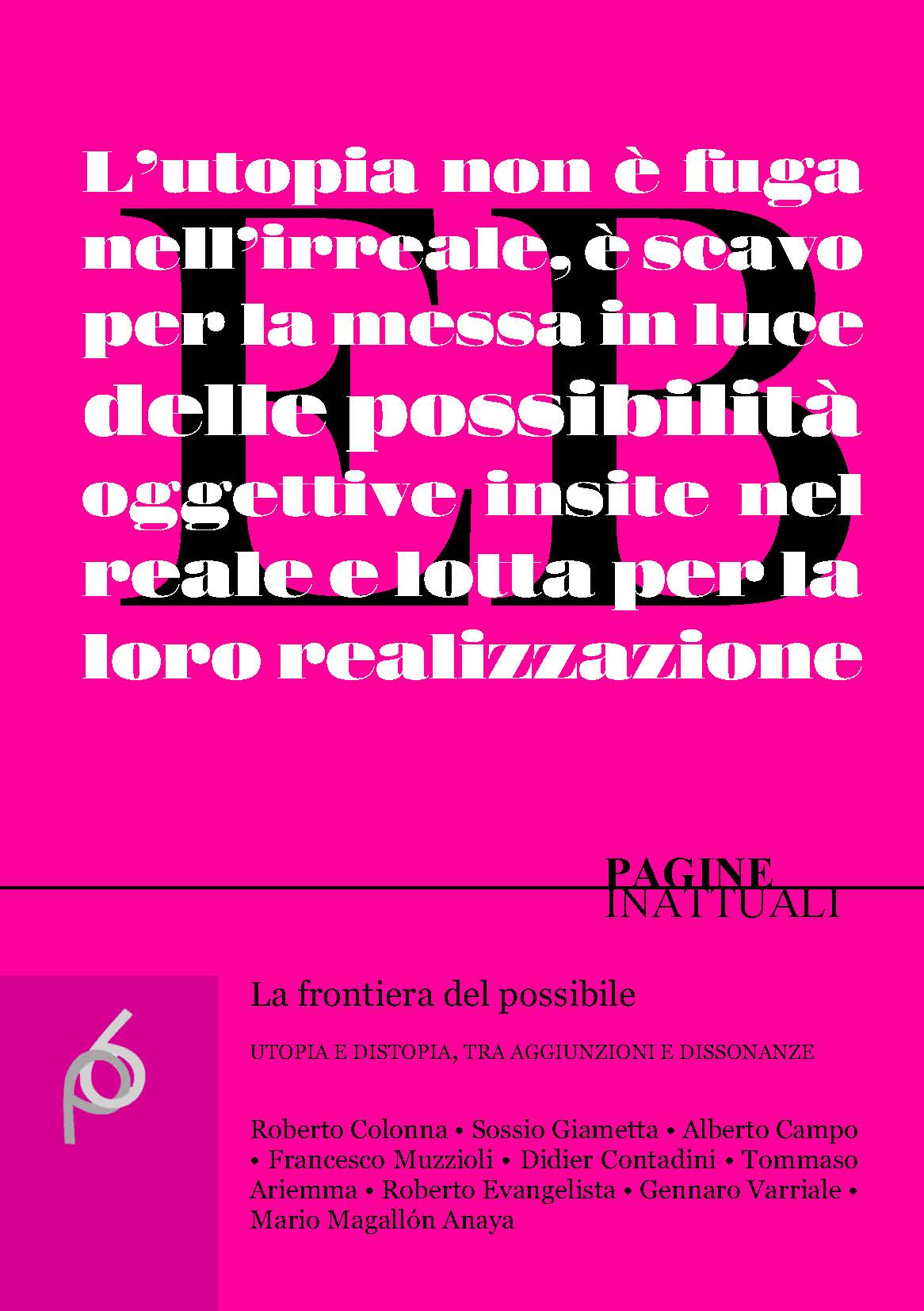No. 9 (2022): The frontier of the possible. Utopia, and dystopia, between additions and dissonances

Utopia is one of the most complex and ancient concepts that humanity has produced. Utopia is used in many and different contexts such as politics, religion, social issues and economic issues, while its intellectual production takes place through literature or scientific essays.
On the other hand, the definition of a theoretical model, beyond its actual realization, assumes the function of a stimulus for the improvement of the contexts in which it develops. For this reason, probably, utopia (and dystopia in the same way) has never suffered from those forms of decadence of interest that constructs of this type often encounter. In this sense, each epoch, it can be said, has its utopian visions, representative of the perspectives and limits of the time that gave birth to them. Reflect about utopia means being able to study a certain social phenomenon from a privileged point of view, halfway between the critique of the present and the planning of a future that is not necessarily near. It means having the possibility of being at a crossroads where critical issues and aspirations for renewal are confronted. It even means affirming thoughts and actions that may not be implemented, thus inoculating that awareness of being bound to a destiny of persistent instability and precariousness.
Against the background of these brief considerations, the new issue of "Pagine Inattuali" tries to offer some research ideas through the interview with Sossio Giametta and the contributions of Alberto Campo, Francesco Muzzioli, Didier Contadini, Tommaso Ariemma, Roberto Evangelista, Gennaro Varriale and Mario Magallón Anaya.

